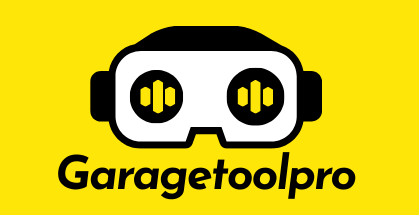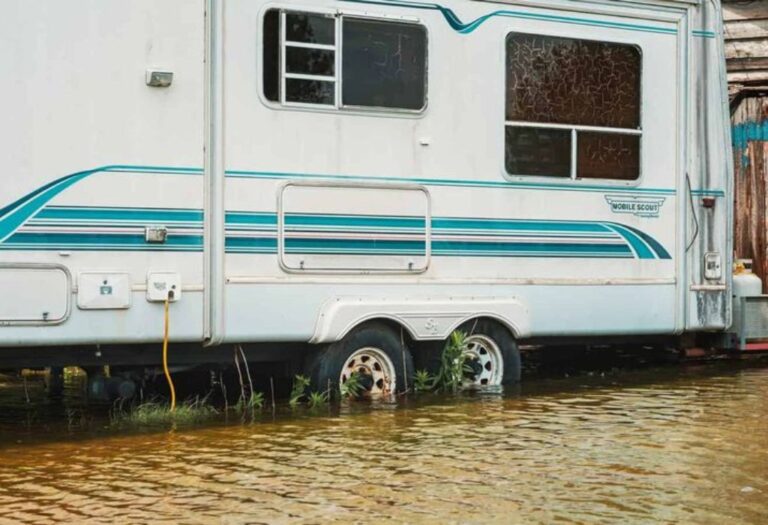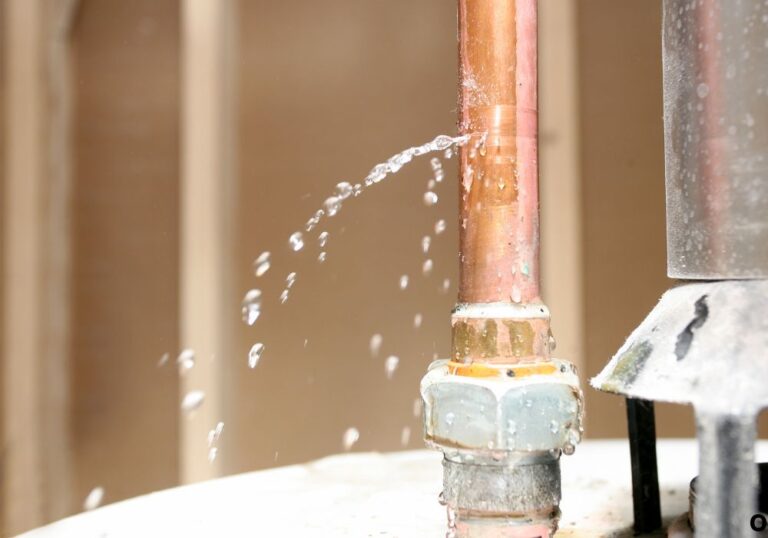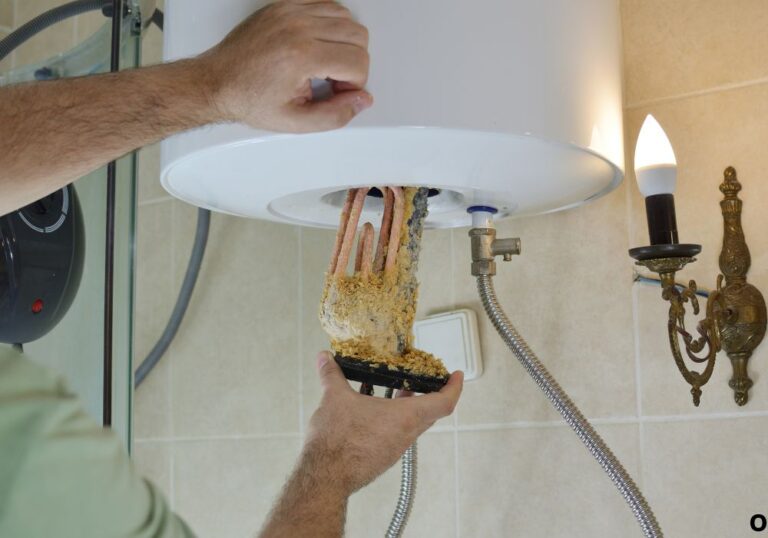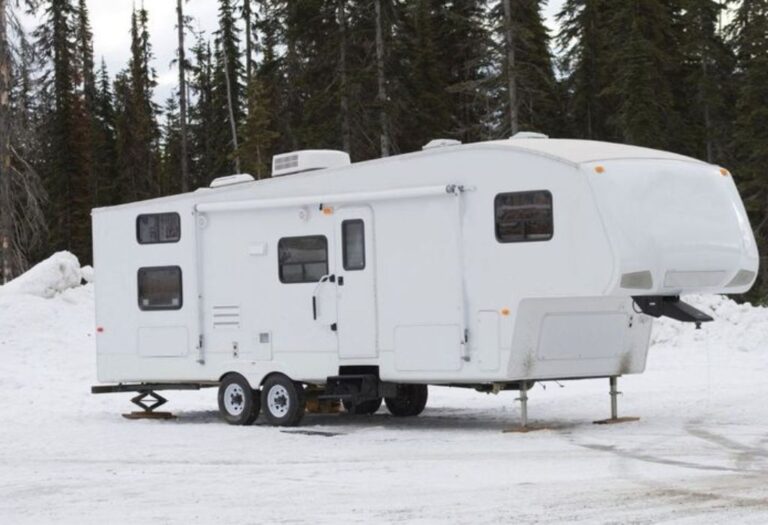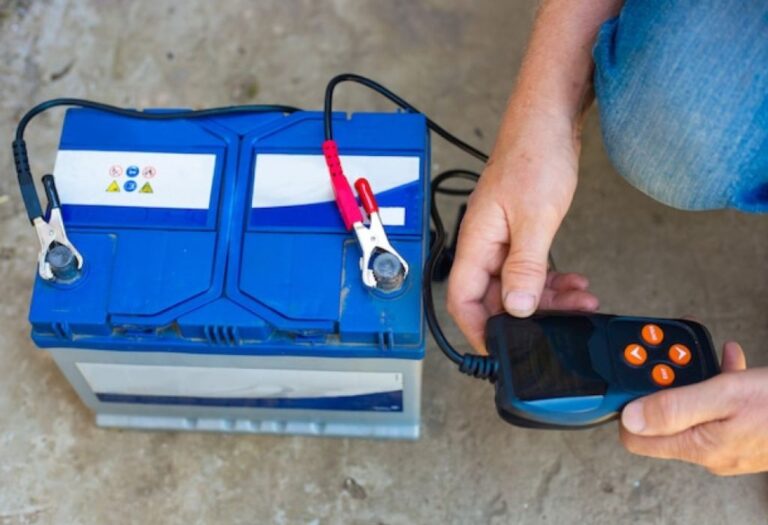Can I Leave My RV Water Pump On Overnight Safely?
Picture this: you’ve just finished setting up your RV at a quiet campsite, ready to relax for the evening.
You turn on the lights, fire up the heater, and open a faucet for a glass of water, only to realize that the water pump has been running all night.
Suddenly, what should have been a peaceful night becomes a source of worry.
Many RV owners face the same dilemma: can I leave my RV water pump on overnight?
The question is not just about convenience; it’s about safety, equipment longevity, and preserving your battery life.
A continuously running water pump can lead to leaks, overheat the motor, or drain the RV’s battery completely, leaving you without power in remote locations (RV Travel).
At the same time, turning the pump off repeatedly can be inconvenient.
Water is essential for drinking, cooking, cleaning, and flushing the toilet. For RV travelers who rely on a steady water supply, managing the pump properly is a constant concern.
According to the National Fire Protection Association, mechanical failures—including plumbing or water system issues—are responsible for a significant number of RV-related incidents each year (NFPA).
Even minor leaks caused by leaving the pump running unattended can result in water damage that compromises cabinetry, flooring, or electronics.
Battery management is another critical factor. Most RV water pumps run on the 12V battery system.
Leaving the pump on for extended periods can significantly deplete the battery, especially if the RV is off-grid or boondocking, potentially stranding the occupants without power.
This guide explores everything you need to know about RV water pump usage.
You’ll learn the risks of leaving it running, when it’s safe, alternatives to constant operation, maintenance tips, and best practices to protect your RV and enjoy worry-free camping.
By the end, you’ll be confident in making smart choices for your water system, ensuring safety, efficiency, and comfort while traveling.
RV water pumps are essential components of the onboard plumbing system, delivering water from the fresh water tank to faucets, showers, and toilets. They maintain a steady water pressure, ensuring the RV functions like a small home.
Most RV water pumps operate on 12V DC electricity and activate automatically when a faucet is opened or a toilet is flushed. This on-demand operation helps conserve battery life and prevents unnecessary wear.
There are two main types of RV water pumps: diaphragm pumps and centrifugal pumps. Diaphragm pumps are common for their reliability and consistent pressure, while centrifugal pumps provide higher flow rates but are less common in smaller RVs (RV Travel).
Water pump capacities vary, typically providing 2.8 to 5.3 gallons per minute (GPM), enough for most household needs inside the RV. Proper maintenance, including checking for leaks and cleaning filters, ensures optimal performance and longevity.
What is an RV water pump?
It’s a 12V pump that draws water from the tank and delivers it throughout the RV plumbing system.
How does an RV water pump work?
It activates automatically when water is used, maintaining consistent pressure for faucets and toilets.
What types of RV water pumps exist?
Diaphragm pumps (common and reliable) and centrifugal pumps (higher flow, less common).
What is the typical water flow rate?
Most pumps provide between 2.8 and 5.3 GPM, sufficient for standard RV usage.
Why is maintenance important?
Regular checks prevent leaks, preserve battery life, and extend the pump’s lifespan.
Risks of Leaving the RV Water Pump On Overnight
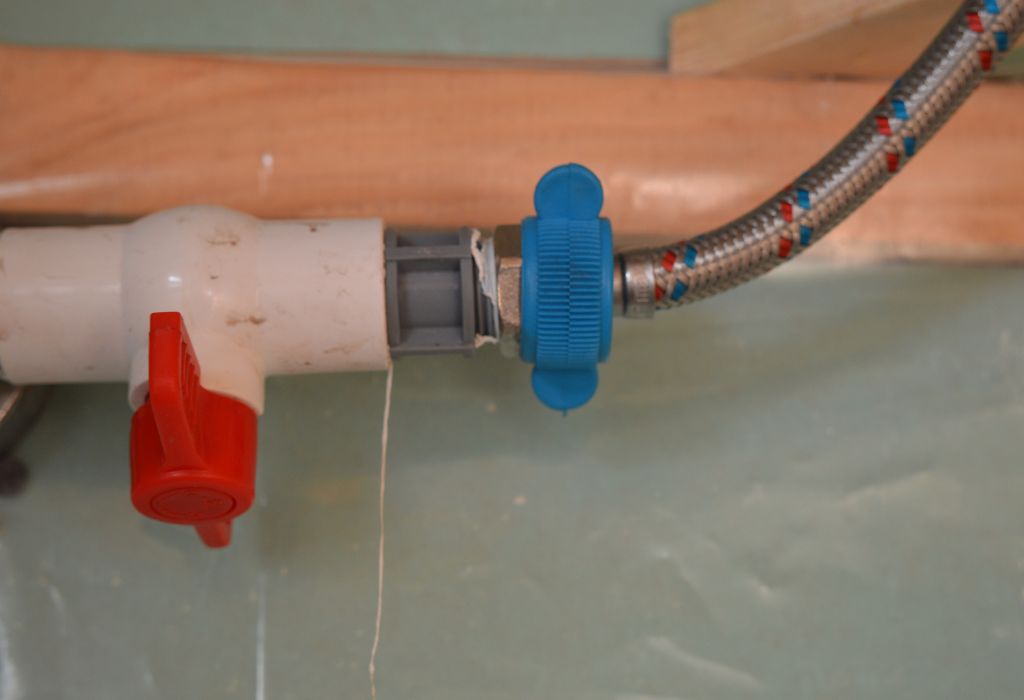
Leaving your RV water pump running unattended can lead to multiple problems. One of the most significant risks is water leaks, which may go unnoticed and cause damage to cabinetry, flooring, or electronics inside the RV.
Another major concern is battery drainage. Most RV water pumps operate on the 12V DC battery system, and running the pump for extended periods can quickly deplete the battery, especially during boondocking or off-grid stays (RV Travel).
Overheating is also a risk if the pump runs continuously without sufficient water in the tank. This can shorten the lifespan of the pump or even cause complete failure. Additionally, constant operation increases wear and tear, reducing efficiency over time.
Can leaving the water pump on cause leaks?
Yes, unattended operation may worsen small leaks, potentially leading to flooding inside the RV.
Will it drain the RV battery?
Yes, prolonged pump usage can significantly deplete the battery, leaving less power for other systems.
Can the pump overheat?
Yes, especially if it runs dry or continuously without breaks.
Does it reduce the pump’s lifespan?
Yes, constant operation increases wear and tear on internal components.
Is it safe to leave the pump on overnight while camping?
It is not recommended unless you are monitoring water levels and battery usage carefully.
When It’s Safe to Leave the Water Pump On
There are situations where leaving your RV water pump running is safe. For example, when boondocking or dry camping, keeping the pump on ensures a consistent water supply for essential tasks like cooking, drinking, and using the bathroom.
During short overnight stays, leaving the pump on may be acceptable if you are nearby and can monitor water levels and battery usage. Employing water conservation measures, such as low-flow faucets and mindful usage, can reduce strain on both the pump and the battery (RV Life).
Installing a pressure regulator can also help maintain safe water pressure, reducing the risk of leaks or pipe bursts. Ensuring the fresh water tank is adequately filled prevents the pump from running dry, which protects the motor from overheating.
Is it safe to leave the pump on while boondocking?
Yes, if water conservation is practiced and battery levels are monitored.
Can you leave it on during short overnight stays?
Yes, provided you are nearby to check for leaks and battery drainage.
Does using low-flow fixtures help?
Yes, it reduces water consumption and eases pump strain.
Should a pressure regulator be used?
Yes, it maintains safe water pressure and prevents damage to the plumbing system.
What happens if the tank runs dry while the pump is on?
The pump can overheat and sustain damage if it runs without water.
Best Practices for RV Water Pump Usage
Turning off your RV water pump when it’s not needed is the simplest way to prevent problems. This reduces the risk of leaks, conserves battery power, and prolongs the pump’s lifespan.
Regularly inspect hoses, connections, and faucets for leaks or wear. Catching minor issues early prevents larger damage and ensures the system operates efficiently.
Using a pressure regulator is recommended to avoid excessive water pressure, which can stress plumbing and cause leaks. Maintaining proper fresh water levels is equally important, as running the pump dry can lead to overheating or failure.
Should the pump be turned off when not in use?
Yes, it prevents unnecessary wear and reduces battery drain.
How often should hoses and connections be checked?
Regularly, ideally before and after each trip or camping stay.
Is a pressure regulator necessary?
Yes, it protects the plumbing system from high pressure that can cause leaks.
Why is maintaining water levels important?
Low water can cause the pump to run dry, leading to overheating and potential damage.
Does proper maintenance extend pump life?
Yes, routine checks and careful usage can significantly increase the lifespan of your water pump.
Alternatives to Leaving the Water Pump On
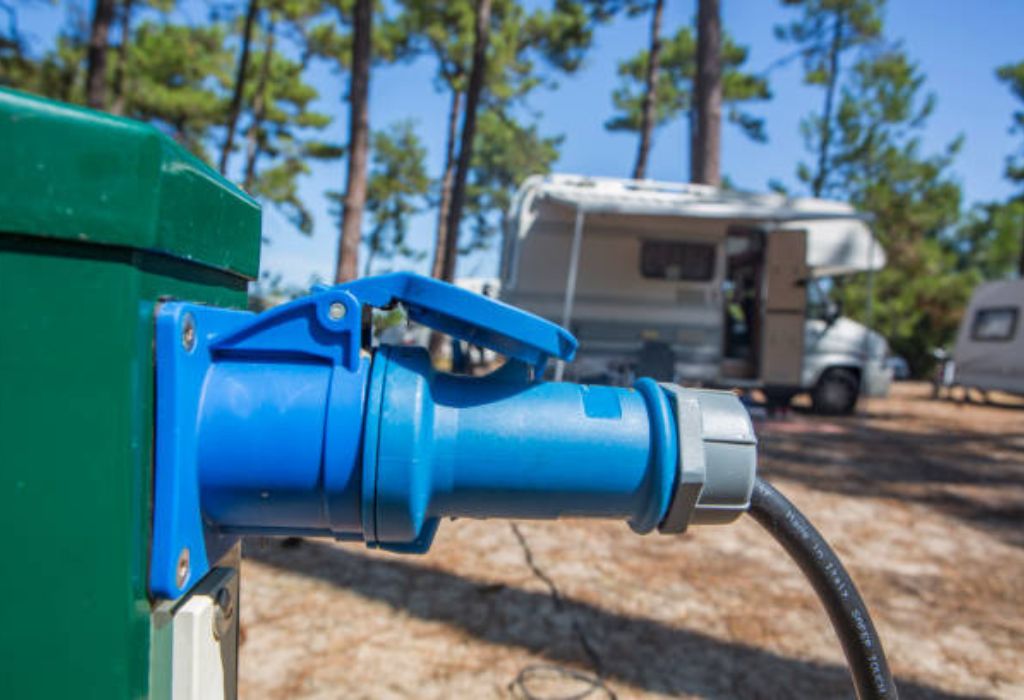
Connecting to a city water hookup is the easiest alternative. This eliminates the need for your RV’s onboard water pump, providing a constant supply without using battery power (RV Life).
Using a water pressure booster can improve low-pressure water flow without relying on the RV pump continuously. This is particularly useful in campgrounds where water pressure is inconsistent.
Advanced smart water systems can monitor water usage and automatically activate the pump when needed. These systems help prevent overuse, conserve battery, and reduce the risk of leaks or damage.
Can city water hookups replace the RV water pump?
Yes, connecting directly provides a consistent supply without using the pump.
Do water pressure boosters reduce pump usage?
Yes, they enhance flow and minimize reliance on the onboard pump.
Are smart water systems beneficial?
Yes, they monitor usage and activate the pump only when necessary.
Can these alternatives prevent battery drain?
Yes, using city water or smart systems reduces continuous pump operation.
Do these alternatives protect the plumbing system?
Yes, regulated water flow reduces the risk of leaks or excessive pressure damage.
Conclusion and Final Advice
While it may be tempting to leave your RV water pump on overnight for convenience, doing so carries risks such as leaks, battery drain, and pump damage. Understanding when it’s safe and when it’s not helps prevent costly problems and ensures a worry-free camping experience.
Using the pump for short periods or in monitored situations is generally safe. However, for unattended or overnight use, it’s better to rely on alternatives like city water hookups, water pressure boosters, or smart water systems to maintain water supply without constant pump operation.
Regular maintenance, including checking hoses, connections, and water levels, prolongs the pump’s lifespan. Installing a pressure regulator and following water conservation measures further reduces risk. By applying these best practices, RV owners can enjoy a safe, efficient, and reliable water system.
Is it safe to leave the pump on overnight?
Generally no, unless monitored carefully with proper water levels and battery capacity.
What are the best alternatives to constant pump use?
City water hookups, water pressure boosters, and smart water systems.
How does maintenance affect pump safety?
Regular inspections prevent leaks, preserve battery life, and extend the pump’s life.
Should a pressure regulator be used?
Yes, it prevents excessive pressure that can damage plumbing.
What is the safest approach for RV water management overnight?
Use alternatives or monitor pump usage, maintain proper water levels, and perform routine maintenance.
I’m David R. Coleman, the founder, lead writer, and lifelong tool enthusiast behind GarageToolPro.com. With years of experience in automotive repair, woodworking, and home DIY projects, I created this platform to share practical tips, detailed tool reviews, and step-by-step guides that help mechanics, hobbyists, and homeowners get the job done right the first time.
